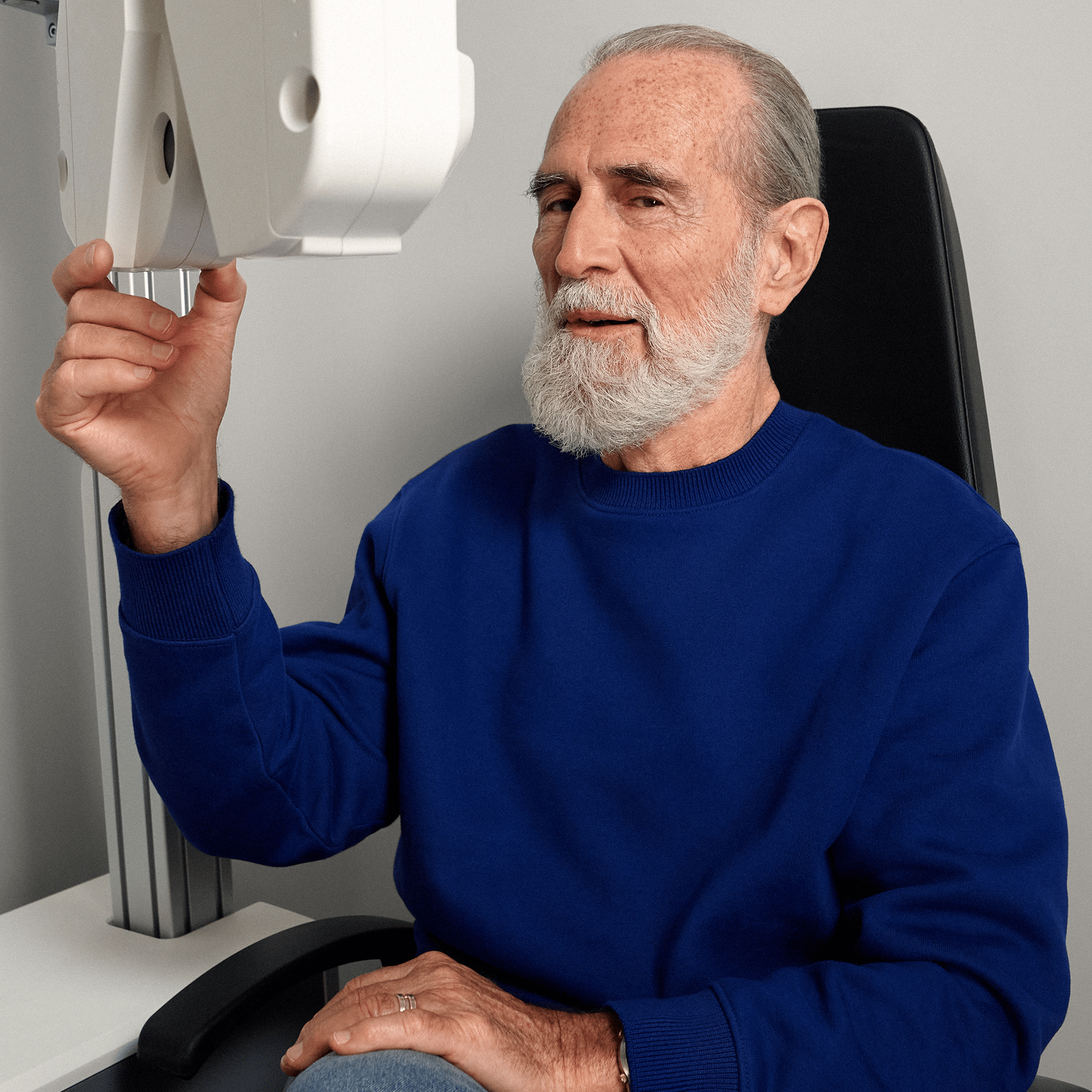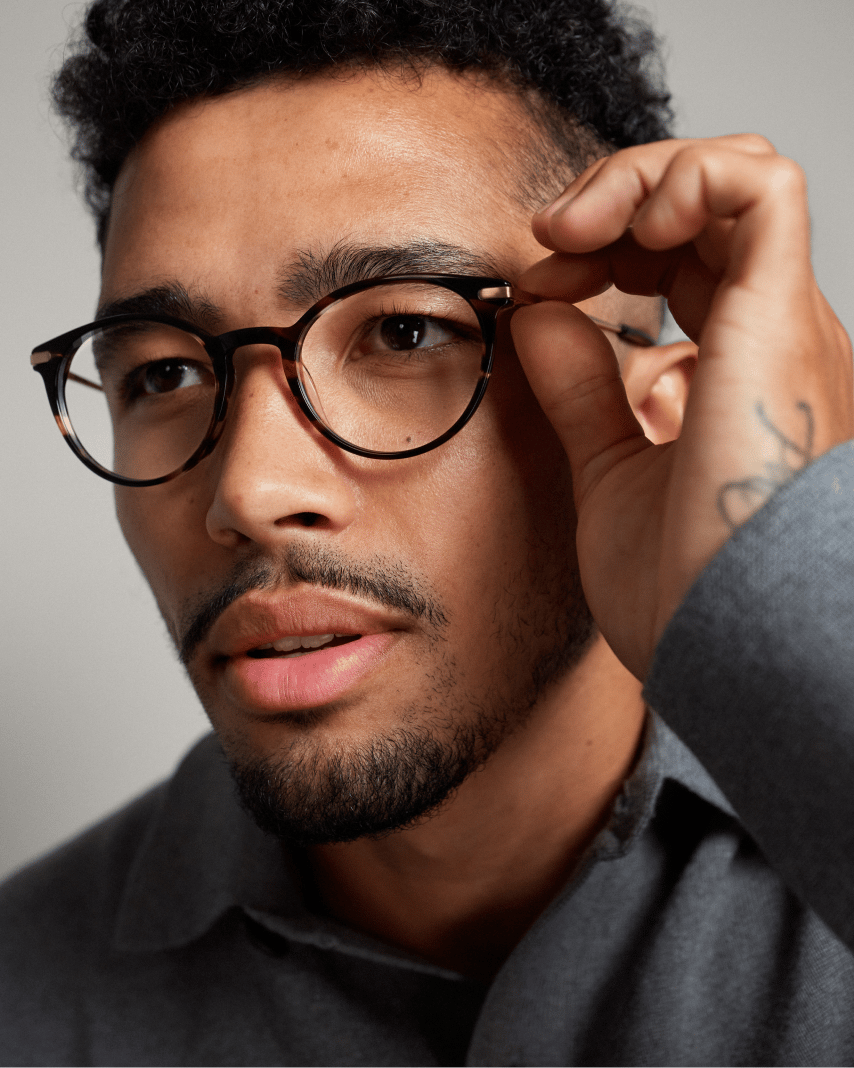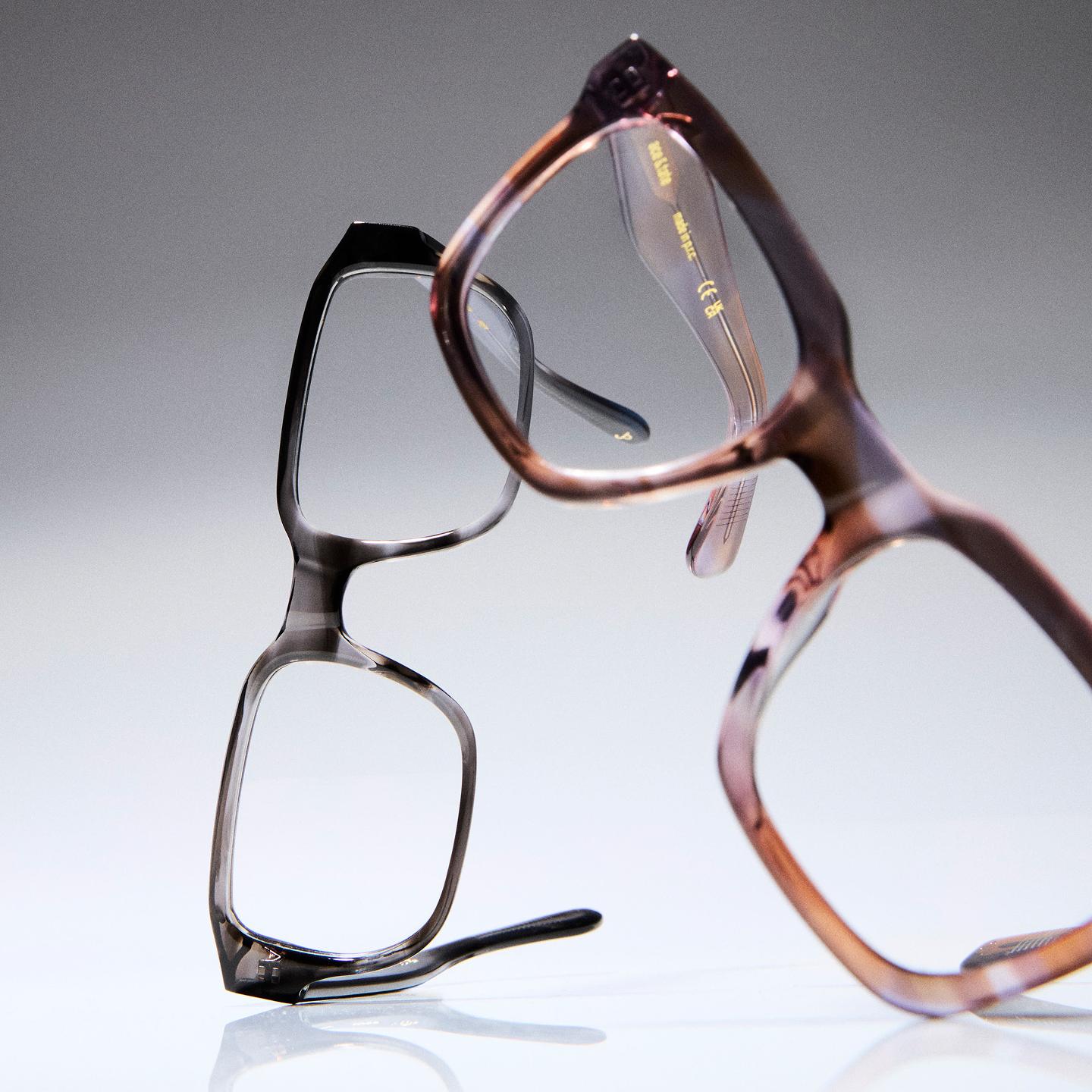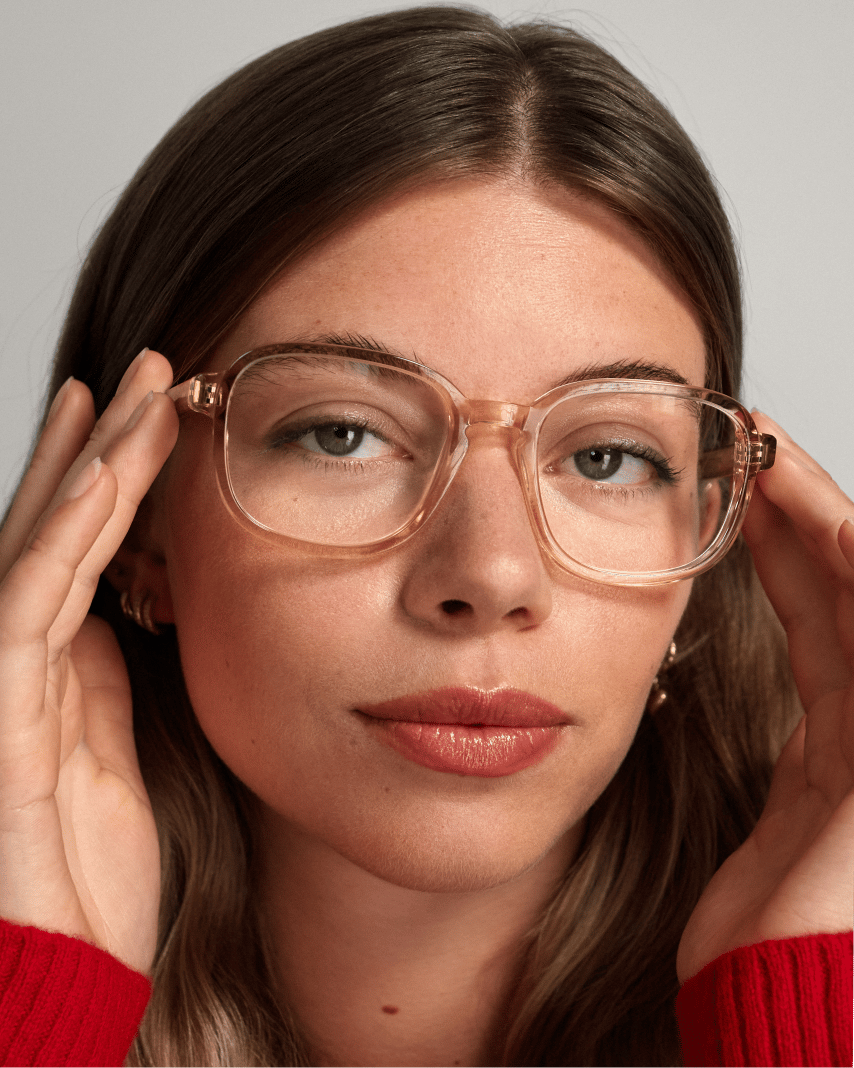Do you need reading glasses?
How to recognise the signs
So you’re squinting, holding things a little farther away, needing a bit more light to read those small, fine prints… Ultimately you might ask yourself: do I need reading glasses?
Indeed, these little discomforts you experience might mark the beginning of a shift in your vision, also known as presbyopia. It’s very common, perfectly normal and, if diagnosed early enough, it can be managed very easily with the right prescription and a stylish pair of glasses.
Let’s dive into the signs, the options, and the things to know about finding your perfect pair of reading glasses.
Do you need reading glasses?
How to recognise the signs
So you’re squinting, holding things a little farther away, needing a bit more light to read those small, fine prints… Ultimately you might ask yourself: do I need reading glasses?
Indeed, these little discomforts you experience might mark the beginning of a shift in your vision, also known as presbyopia. It’s very common, perfectly normal and, if diagnosed early enough, it can be managed very easily with the right prescription and a stylish pair of glasses.
Let’s dive into the signs, the options, and the things to know about finding your perfect pair of reading glasses.

A natural shift
Understanding presbyopia
Presbyopia, also known as age-related farsightedness, is a natural part of ageing. Around the age of forty, the lens of the eye starts to lose its flexibility, making it harder to focus on objects up close. Unlike nearsightedness or farsightedness, which are due to the shape of the eyeball or cornea, presbyopia is directly related to the ageing process of the eye. Almost everyone experiences it to some degree, whether or not they’ve had perfect vision their entire lives.
If you’re noticing that reading small text is a struggle, or you’re holding your phone at arm’s length to see clearly, it may be the first sign that reading glasses could help.

A natural shift
Understanding presbyopia
Presbyopia, also known as age-related farsightedness, is a natural part of ageing. Around the age of forty, the lens of the eye starts to lose its flexibility, making it harder to focus on objects up close. Unlike nearsightedness or farsightedness, which are due to the shape of the eyeball or cornea, presbyopia is directly related to the ageing process of the eye. Almost everyone experiences it to some degree, whether or not they’ve had perfect vision their entire lives.
If you’re noticing that reading small text is a struggle, or you’re holding your phone at arm’s length to see clearly, it may be the first sign that reading glasses could help.
Look out for these signs
The presbyopia checklist
✓ Blurriness Up Close
If reading a menu, a book, or a text message requires extra effort or feels unclear, this is often a key indicator.
✓ Frequent Headaches
Repeated squinting or straining to focus can lead to headaches, especially after activities involving close-up work.
✓ Eye Strain and Fatigue
Do you experience tired or sore eyes after reading for a while? If so, it may be due to the eye muscles working harder to compensate for presbyopia.
✓ Increasing Reading Distance
If you find yourself holding things at arm’s length, this is one of the hallmark signs that your eyes might need a little help.
If any of these sound familiar, it’s probably time to consider
reading glasses or multifocal glasses.
Which lenses to choose?
Reading glasses vs. Multifocal glasses
Once you’ve realised you need some assistance with close-up vision, you’ll want to decide which type of lens will best suit your lifestyle and needs.

Multifocal Glasses are a game-changer for those who need both near and distance vision correction. Also known as progressive lenses, they combine multiple vision fields in one pair of glasses, allowing you to see clearly up close, far away, and at every distance in between without switching glasses.
If you’re not sure which ones to go for, our friendly, qualified opticians will give you all the information you need during your eye test.

The part you've been waiting for
Choosing your frames
Although turning to reading glasses is often a practical decision, there is no reason not to also make it a stylish one. As your vision shifts so can your look, and we have a large selection of frames for you to choose from.
Whether you choose reading glasses or multifocal lenses, having the right pair can bring clarity and comfort to everyday activities. Finding frames that look as great as they feel can make the transition to wearing them something to look forward to. And with so many frame options, you can explore a new side of your style while improving your vision.

The part you've been waiting for
Choosing your frames
Although turning to reading glasses is often a practical decision, there is no reason not to also make it a stylish one. As your vision shifts so can your look, and we have a large selection of frames for you to choose from.
Whether you choose reading glasses or multifocal lenses, having the right pair can bring clarity and comfort to everyday activities. Finding frames that look as great as they feel can make the transition to wearing them something to look forward to. And with so many frame options, you can explore a new side of your style while improving your vision.
We know that changes in your vision can feel daunting. Making you feel comfortable and informed is our top priority, and our qualified opticians are here to attend to your eyes’ every need. If you’re unsure whether presbyopia is something you should worry about, don’t hesitate to book an eye test at one of our stores. We will be happy to help.


